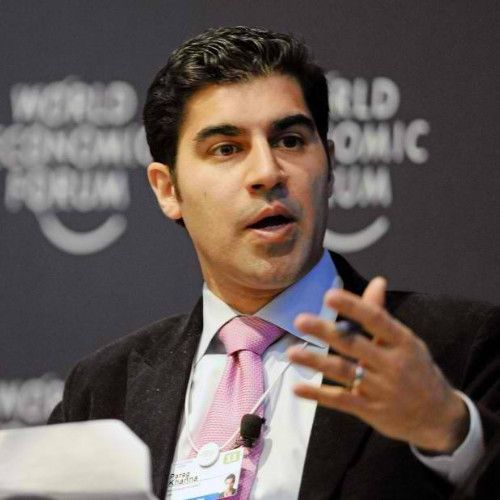Move with Parag Khanna

Parag Khanna discuss his latest book, Move and explain why mobility is destiny in the midst of climate change and geo-political tensions.
Fresh out of the studio, Parag Khanna, founder and managing partner of Futuremap and celebrated author of various books, joined us to discuss his new book "Move" and explain why mobility is destiny. Parag started from the future in 2050 and worked backwards to explore the various scenarios in how mobility of talent will be in the midst of geopolitical tensions and climate change. Last but not least, Parag translated what it means for Asia Pacific moving forward based on its current trajectory and global technology shifts.
"So I look at every single one of those categories of mobility, of migration and everything to electric VTOL aircraft and the impact that will have on the future of urban design. That is part of the individual experience of mobility in the future as is of course climate migration, fleeing countries, where there is simply not a drop of water left. All of those are drivers of our future mobility, depending on who you are and where you are." - Parag Khanna
Here are the links and show notes for this episode:
Introduction
- Parag Khanna (@paragkhanna, LinkedIn, personal site) Founder and Managing Partner of Futuremap and author of “Move”, “The Future is Asian”, “Technocracy in America”, “Connectography” and “The Second World”.
- Since our last conversation two years back and in between, we have the COVID-19 pandemic and the changing of US Presidents from Trump to Biden, what have you been up to since we last spoke?
Move by Parag Khanna (Amazon, Simon and Schuster)
- Parag Khanna's "Move" is one of the best political books of 2021 rated by Financial Times.
- I want to start differently in discussing your new book “Move” with the start of your prologue which asks the provocative question, “Where will you live by 2050?”, from the recent Conference of the Parties or COP26 meeting on climate change, what is your assessment on the different groups of people from frontier, emerging and advanced economies living in that time?
- Working backwards till today, given nationalism has been on the rise since the last decade and the rising geopolitical tensions across different nation states and the US, do you think that we are moving towards an anti-globalization world or put it another way, will nations restrict the movement flow of talent in the fear of a demanding populace?
- The main theme of the book is to establish that mobility is destiny, building on your earlier point of view that connectivity is destiny. Can you establish the baseline on what mobility means for the individuals?
- In the book, you have build a 2x2 diagrams based on the two axes of migration and sustainability and construct four potential scenarios in which path the world will take: “New Middle Ages”, “Regional Fortresses”, “Northern Lights” or “Barbarians at the Gate”, what is the mental model behind these scenarios?
- Globalization has been a major theme in the past three decades, and was often seen as the solution that brings people together, but instead, we see that advanced societies have regressed. Can these problems be mitigated if we will be able to manage the current crises and move humanity to another period of peace?
- What happens to the southern continents from India, Australia to South America? How are we going to see 1.2 billion people moving out of these fast becoming areas that are not habitable due to climate change?
- What will happen to the Asia pacific regions in their current trajectory and talent flow specifically to China, Japan, Korea and Southeast Asia?
- When talent meets opportunity, migration will occur. What does it mean for the expat today with lockdowns and rising tensions with local populace even in expat friendly countries from Dubai to Singapore?
- Is there a hope for a “global passport” that allows talent to be anywhere?
- What are your thoughts on remote work, given that COVID-19 pandemic accelerated the adoption of digital technologies such as zoom?
- That comes back to the question which I usually ask first, what inspired you to write the book? What are the key themes and main takeaways which you want the reader to gain out of the book?
Closing
- Any recommendations that have inspired you recently?
- Parag's recommendations: Traveling to see what is really happening and experience.
- How can my audience find you?

